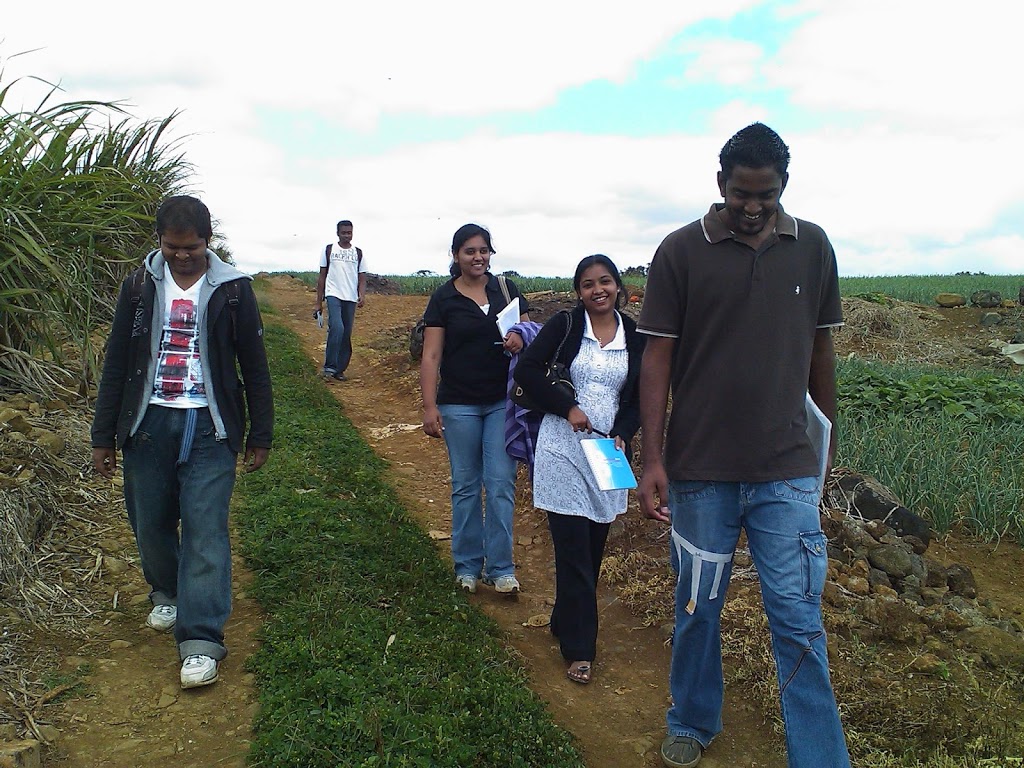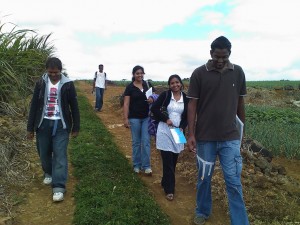Youth and Employment
Nearly 200 million people in Africa are aged between 15 and 24 years, comprising more than 20% of the population in most countries (UNDESA, 2010). Presently, the major challenges faced by this category of the population is to find decent and productive employment. In many African countries, Agriculture is one of the largest contributors to the national GDP (up to 40% in some cases) and the Agricultural sector has the potential to employ these young people, and yet, the engagement and contribution of youth in the agriculture value-chain is not significant. The youth population is growing and statistics indicate that this population will exceed 300 million in 2015. At the same time, other problems which are arising are that rural youth in Agriculture are facing several challenges and are migrating to cities, where unemployment is already an issue. The question that we ask ourselves is what will happen if rural youths keep on migrating to cities where the problem of unemployment will not be solved but will just worsen? Who will produce food to feed a growing population? Who are going to be our future leaders in Agriculture?
In Mauritius, we do not have problems of rural youth migration because of the small size of the country (2040 Km2), but the unemployment issue is same. The country is producing many graduates and many of them are either unemployed or do not have a decent job. Read more on youth unemployment in Mauritius HERE.
Agriculture and youth
Today, the world’s population is of 7 billion and is expected to reach to 9.2 billion by 2050 (UNDESA, 2010). Projections also show that global food production will have to increase by 70% to sustain this growing population, implying that Agriculture will have to play a vital role in ensuring food security, reduce hunger & poverty and at the same time be sustainable. When analysing the situation, we see that there is a need to transform the agricultural sector into an Agro-Industry. As a result of population growth, unsustainable practices (over-use of agro-chemicals, over-exploitation of water resources, deforestation, over-grazing and over-fishing) and ineffective policies and institutions, resources on which their livelihoods depend have become degraded. Smallholder farmers in Mauritius and over the world are facing several challenges like high cost of production (and hence less profits), lack of labour and climate change among others. What is needed now is for them to increase farm productivity, exploit new trade opportunities and commercialize their production systems using the most appropriate farming methods and technologies and make Agriculture become a business. But while being more productive they should also consider to be more environmentally sustainable and conserve natural resources. For this change to occur in Agriculture, smallholders need to be more innovative and knowledge-extensive than it is today and thus, there is a need to have youth in the sector, for it is a fact that they are more likely to innovate and adopt new farming techniques and technologies than the experienced ones in the sector.
Challenges faced by youth in Agriculture
Despite acknowledging the fact that youth are needed in Agriculture to feed a growing population and meet MDGs, those involved in the sector are facing several challenges;
1. Education, Training and Skills
Education and training play a very important role where youth employment is concerned. The main challenge that rural youth (especially girls) face is the lack of access to education and training which makes it difficult for them to secure a job or other opportunities in Agriculture since they do not have the required skills. On the other hand, educated youth face other challenges regarding their training received from Agricultural colleges and Universities. In many cases, agricultural courses tend to be more theoretical than practical and when the young graduates set out to look for a job, they find themselves lacking the skills required on the job market.
2. Access to land
Having access to land is a major constraint when youth consider to venture into Agriculture. Land issues is different in different countries, depending on the policies and schemes that exist.
3. Access to finance
Access to finance is a problematic issue since banks are reluctant to provide them with loans and youth are considered as being “risky clients”.
4. Access to markets
Lack of access to markets and input suppliers is very often a constraint that youth in rural areas face and this prevent them from making profit from Agriculture.
5. Few job opportunities for educated youth
Educated youth who have completed their higher studies in Agricultural Sciences are presently finding themselves in a situation where there is no job available in the formal sector. As a result, they have to search for a job in other sectors (financial, ICT, health etc) and eventually the country is losing manpower in Agriculture. In addition, those who stay in the Agricultural sector have to take low-salary jobs which do not require a degree and these youth are de-motivated. This situation really discourages other youth to study Agriculture since they do not want to find themselves in the same situation.
6. Lack of incentives and opportunities
Youth are often encouraged to start up an Agri-Business and become entrepreneurs. But in order to do so, they should be provided with incentives and opportunities, which unfortunately are present in National policies or schemes.
To address these challenges, and to make agriculture attractive to young people, we see that there is a need to invest in education at all levels, support agricultural innovation, build market infrastructure and improve the business environment in ways that will raise incomes and expand the agriculture value-chain.
Below is an interesting Power-Point Presentation by the FAO, which explain how the needs on youth in Agriculture can be addressed:


In my opinion many youths still don’t know the importance of agriculture..
At tertiary level, many are compelled to choose agricultural courses(because they didn’t got courses of their choice)and many of they have a wrong impression of agriculture(i’m saying because i got many friends that think like that..
Thanks Runveer for sharing your opinion. I agree with you that youth in Mauritius are not realizing the importance of Agriculture because of their already existing negative perception on Agriculture that it is a sector for those who do not do well in their studies and have to choose it as a last resort.
But what about opportunities? Do you see opportunities for youth in the Agricultural sector in Mauritius?
This is good work Nawsheen, and thanks for sharing your work with the World.